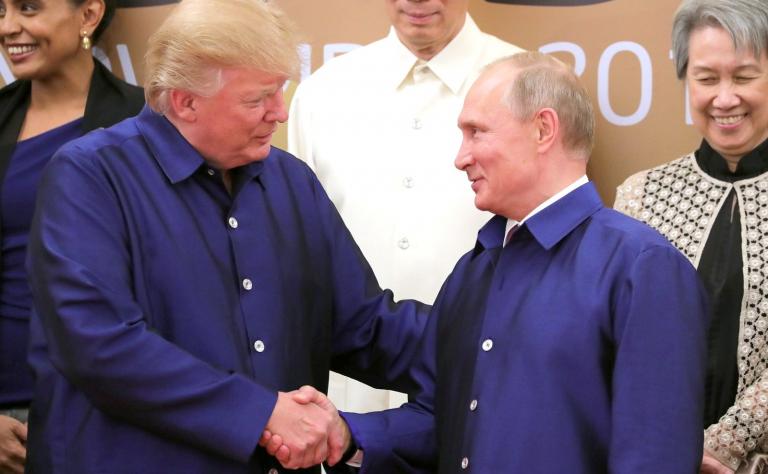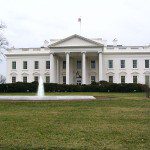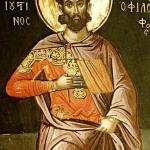
In the western tradition of historiography or historical writing, there has often been a tendency to focus on outsize individuals, to write history effectively as biography — and not merely in such obvious cases as Plutarch’s famous Parallel Lives of the noble Greeks and Romans and his “lives” of twelve Roman emperors and his Life of Alexander, or Suetonius’s The Twelve Caesars, or Eusebius’s cloyingly hagiographic Vita Constantini. Historians still commonly speak of “the Augustan Age,” and “Elizabethan England,” and “the Victorian period,” and “Jacksonian America.”
Obviously, Caesar Augustus doesn’t exhaust what is important about “the Augustan Age.” After all, this was the period in which the Roman poets Virgil and Horace and Ovid and Sextus Propertius and Tibullus flourished, as well as the historian Livy (Titus Livius). And among the chief ornaments of Elizabethan England are not only Elizabeth I herself but the explorers Sir Francis Drake and Sir Walter Raleigh, the composers William Byrd and John Dowland (recordings of whose lute music I commonly played at night, as a teenager, when I was going to sleep), the foundational natural philosopher, statesman, and proto-scientist Sir Francis Bacon, and the writers Edmund Spenser, Christopher Marlowe, and (cue drum roll) William Shakespeare.
Likewise, the “Victorian period” has the long-reigning monarch Queen Victoria at its head, but it is scarcely reducible to her. It’s also the era of Gilbert and Sullivan, Robert Browning, Elizabeth Barrett Browning, Oscar Wilde, Alfred Lord Tennyson, Charles Dickens, William Makepeace Thackeray, Anthony Trollope, the three Brontë sisters, George Eliot (Mary Ann Evans), John Stuart Mill, Thomas Hardy, Wilkie Collins, Thomas Carlyle, Gerard Manley Hopkins, Christina Rossetti, John Henry Cardinal Newman, John Ruskin, Matthew Arnold, Charles Darwin, Rudyard Kipling, and a small host of others
Moreover, the concept of “Jacksonian America” uses Andrew Jackson as an apt symbol of the broader democratizing trends of the era (e.g., the displacement of the Virginia planter-aristocracy that had, to a large extent, founded the American republic and led it up until his rise) and of the rapid expansion of American civilization westward. President Jackson is a good symbol, and not merely a symbol. But he hardly exhausts the significant people and ideas of the period that is named after him.
Reacting against what they saw as an overemphasis on the role of specific politically important individuals, many historians revolted against “the great man view of history.” (Marxism is an extreme example of such rejection, as was the Hegelianism from which it sprang.) And, to an extent, this reaction was quite justified. Furthermore, it produced some very great works of historiography, among them such tomes as Fernand Braudel’s pivotal La Méditerranée et le monde méditerranéen à l’époque de Philippe II (1949) and Marshall G. S. Hodgson’s incomplete three-volume The Venture of Islam: Conscience and History in a World Civilization, which had an enormous influence on me when I encountered it (and read and re-read it) in graduate school. Social and economic history must not be overlooked. Demographic trends (e.g., diminished family sizes or large numbers of “surplus” young men) are fundamental.
But rejection of the “great man” conception of history — notably and perhaps ironically, as illustrated by references above to the “Elizabethan” and “Victorian” periods, the “great men” can sometimes be “great women” — can go too far. Those who minimize or negate the importance of particular individuals, claiming to see them as not merely constrained by surrounding social and economic and technological forces but actually almost helplessly carried along by such currents, have, I think, not sufficiently studied the lives and careers of such individuals as Sir Winston Churchill and President Harry S. Truman, who seem to refute the notion of history as merely the working out of large-scale trends.
Had Gustav Stresemann not died in late 1929 at the young age of fifty-one, would Hitler and the Third Reich have come to power in 1933? Would there have been a Second World War? (The Nazis seem to have recognized his having been a danger to them when, in 1935, not terribly long after assuming total control of Germany, they destroyed Stresemann’s tomb monument near Berlin.) Had Neville Chamberlain stood up to Hitler at Munich, would Germany have invaded Poland in 1939? Had Churchill not taken control of the British government just when he did — had it been Lord Halifax, instead — would the United Kingdom have negotiated a humiliating peace with Germany? What if one of the many attempted assassinations of Adolf Hitler had succeeded? Would Germany and in fact the entire world have descended into the abyss created by his insane ideology and his personal charisma?
We have, I think, a very clear illustration of the continuing relevance of the “great man” view of history in the attempted assassination of former president Donald J. Trump on Saturday, 13 July 2024.
Can anyone seriously argue that, had Mr. Trump been killed by Thomas Matthew Crooks, American history would not have been significantly altered?
Let me back up just a tiny bit: Ronald Reagan came to the governorship of California and ultimately to two very consequential terms in the White House as the political leader of a conservative movement that was larger than he was (populated by such others as, among many, Barry Goldwater and William F. Buckley, Jr.) Absent Mr. Reagan, that movement might not have attained the presidency, but it would not have disappeared. It preexisted him and, at least for a decade or two, survived him.
I see Mr. Trump differently — and this has nothing to do with whether I approve of him or disapprove of him. Rather like Peronism in Argentina, it is difficult to pin down exactly what “Trumpism” (for lack of a better word) stands for apart from the personal and sometimes changing views of its leader. Nationalism, clearly. Perhaps something approaching isolationism? Maybe. Is it for free trade? Not especially. Is it opposed to abortion? That’s no longer entirely clear. Is it for limited government? Property rights? Strict construction of the Constitution? Again, unclear.
Even, however, if you don’t share my personal view of the relationship between Mr. Trump and “Trumpism,” what I’m getting at is that, were Mr. Trump to be eliminated (whether by natural or other causes), it would make a substantial difference in the history of the United States that would extend well beyond the next four years — and possibly in the history of such places as Ukraine, Taiwan, Korea, and elsewhere. Would “Trumpism” survive the departure of Mr. Trump? His selection of J. D. Vance as his running mate makes such survival somewhat more likely than I would have thought a week or two ago, but it still isn’t clear that even Senator Vance has the kind of mysterious magnetism that many Americans sense in Mr. Trump.
The would-be assassin’s bullet missed killing Mr. Trump on Saturday by substantially less than an inch. Did a fly land on the shooter’s nose at the very second he pulled the trigger? (We’ll never know, of course, but one thinks of the proverbial butterfly — in chaos theory — flapping its wings.) Did a breeze, or the failure of a breeze, suddenly change the bullet’s trajectory? Had Mr. Trump not turned his head at just the right moment, would he have died there in rural Pennsylvania? Who would have claimed the nomination this week, in that case? What differences would that have made?
On such things — in addition to the huge, impersonal forces of economics and demographics and technological innovation — hang the contingencies of human history.













